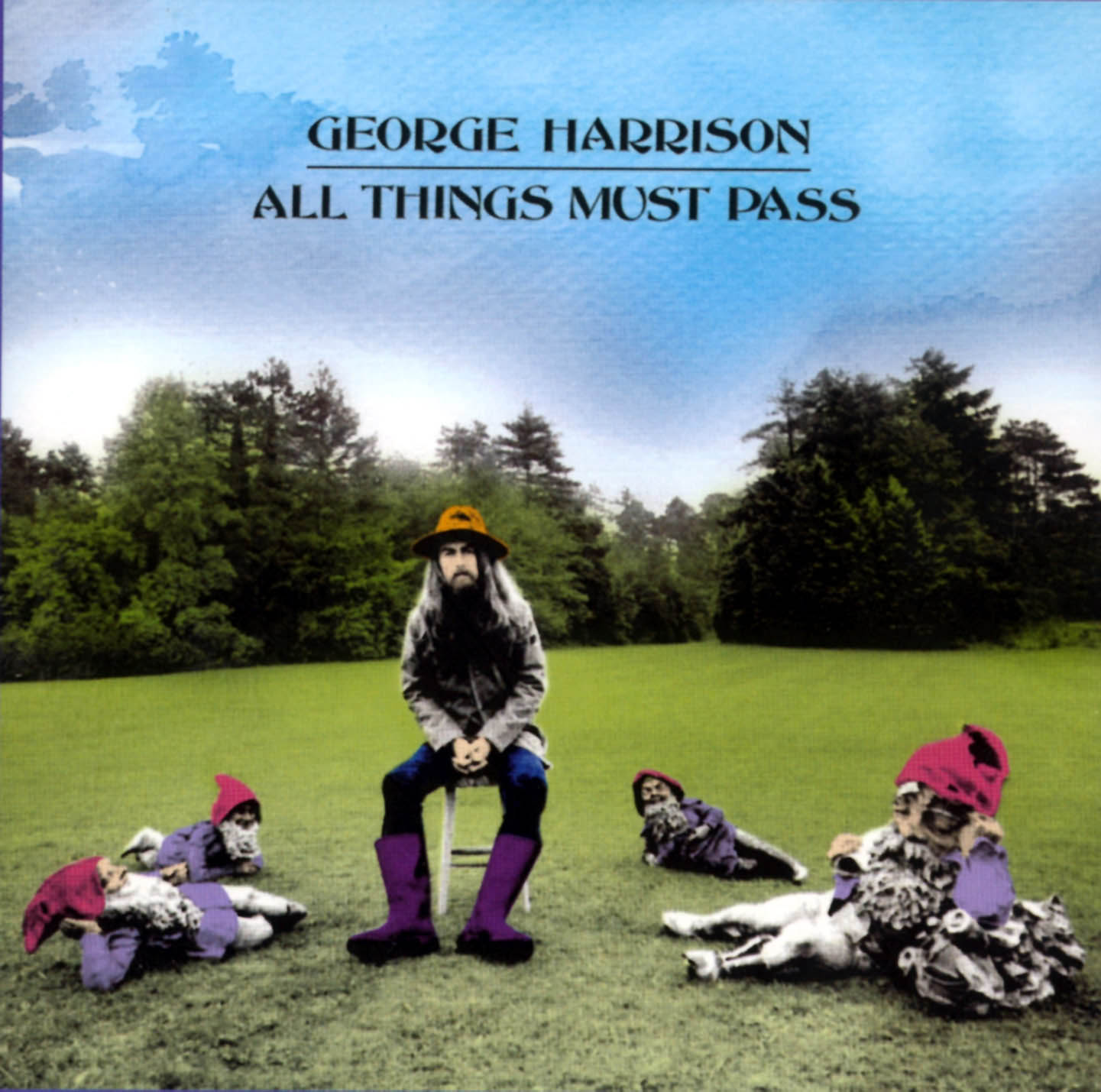
All Things Must Pass (1970)

Disc One
1. I'd Have You Anytime
2. My Sweet Lord
3. Wah-Wah
4. Isn't it a Pity (version one)
5. What is Life
6. If Not For You
7. Behind That Locked Door
8. Let it Down
9. Run of the Mill
10.Beware of Darkness
11.Apple Scruffs
12.Ballad of Sir Frankie Crisp (Let it Roll)
13.Awaiting on You All
14.All Things Must Pass
Disc Two
1. I Dig Love
2. Art of Dying
3. Isn't It a Pity (version two)
4. Hear Me Lord
5. Out of the Blue
6. It's Johnny' Birthday
7. Plug Me In
8. I Remember Jeep
9. Thanks for the Pepperoni
In hindsight, All Things Must Pass is not merely George Harrison’s best solo album—it is, by any reasonable measure, his definitive statement as an artist. A triple album, sprawling across over one hundred minutes, it immediately signaled that Harrison, once The Beatles' quietest voice, had been holding something back. For years.
It is no coincidence that the seeds of this flowering were sown during the dissolution of The Beatles. Harrison’s contributions to Abbey Road, notably Something and Here Comes the Sun, suggested a songwriter whose pen was now as potent as those of Lennon or McCartney. But rather than lingering in the wreckage of the band’s collapse, Harrison exploded forward—armed with stockpiled songs, unshackled by compromise.
The partnership with Phil Spector might have seemed curious. Harrison, immersed in Eastern philosophy, mysticism, and transcendental reflection, paired with the king of cavernous soundscapes and sharp-edged pop production? And yet, it works—perhaps precisely because of its contradictions. Spector’s Wall of Sound doesn’t smother Harrison’s sincerity; rather, it elevates it. Tracks like My Sweet Lord, Wah-Wah, and What Is Life carry both spiritual urgency and pop immediacy. These are not mere singles—they are declarations.
Of course, not everything maintains this level. The best songs are arguably front-loaded, and the final disc—a lengthy jam session—is often dismissed as superfluous. It may well be. Yet even in this excess, there’s an honesty, an eagerness to explore, to preserve the joy of playing. If it drags, it does so with a kind of loose-limbed charm. Perhaps it would have served better as a later release—bonus material in another era—but that, too, is hindsight.
The later CD reissues, particularly the 30th anniversary edition, added little of substance. Instrumental takes of major tracks (My Sweet Lord, What Is Life) arrive stripped of their vocals, and consequently, of their soul. Redundancy masquerading as depth. But such footnotes do not diminish the impact of the original. All Things Must Pass is, above all, an act of catharsis. Harrison had waited years for this. He would go on to release other records, some with flashes of brilliance, others best forgotten. But here, at this moment, he was uncontainable. For once, there was no Lennon, no McCartney, no compromises. Just George. And it was more than enough.
Go back to the main page
Go To Next Review